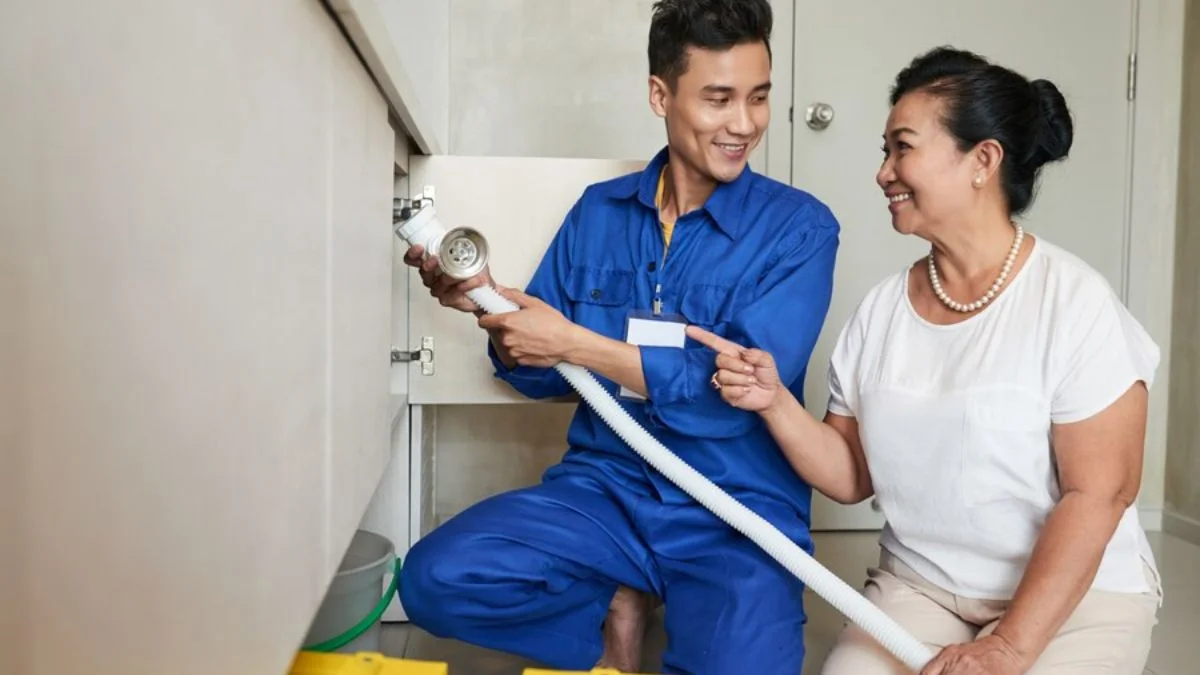Most homeowners don’t think about their plumbing until something goes wrong. Whether it’s a slow drain or a sudden leak, plumbing problems can quickly turn into costly repairs if left unchecked. Regular plumbing inspections are a simple yet crucial way to prevent these issues before they start. Not only do they help catch problems early, but they can also save you money, improve water efficiency, and extend the life of your plumbing system. Plumbing Rexburg is here to help with your plumbing inspections and any questions you may have.
Why Regular Plumbing Inspections Matter
1. Prevent Costly Emergencies
Small plumbing issues, like leaks or clogs, can become big problems over time. A minor leak might not seem like a big deal, but it can lead to water damage, mold, and even structural issues in your home. Regular plumbing inspections catch these problems early, saving you from emergency repairs and water damage restoration, which can be expensive.
2. Extend the Lifespan of Your Plumbing System
Like any other system in your home, your plumbing undergoes wear and tear. Regular maintenance and inspections help ensure that pipes, fixtures, and appliances stay in good condition for as long as possible. Fixing minor issues as they arise prevents major breakdowns, which can lead to expensive repairs or replacements.
3. Save Money on Water Bills
Leaky faucets, inefficient fixtures, or hidden pipe leaks can waste a lot of water over time. A plumbing inspection identifies areas where water is being wasted, helping you fix these issues and reduce your water bills. Simple fixes like repairing leaks or upgrading to water-efficient fixtures can significantly lower your monthly utility costs.
What a Plumbing Inspection Involves
A thorough plumbing inspection covers all aspects of your home’s plumbing system, including:
1. Pipe Inspection
The plumber will inspect your pipes for leaks, corrosion, and blockages. Older pipes are more prone to wear and tear, and an inspection can identify any areas that need repair or replacement before they fail completely.
2. Water Heater Check
Your water heater is one of the most important components of your plumbing system. During an inspection, a plumber will check the water heater for leaks, rust, and sediment buildup, ensuring it’s working efficiently and safely.
3. Faucets and Fixtures
Inspecting faucets, showerheads, and other fixtures is essential for identifying leaks or water pressure issues. Even a slow-dripping faucet can waste gallons of water every day, so these issues should be addressed promptly.
4. Drain and Sewer Line Inspection
Slow drains or frequent clogs can indicate a blockage or damage in your drain or sewer lines. Plumbers use specialized tools, such as cameras, to inspect these lines for any signs of trouble, like root intrusion or buildup, that could cause major clogs.
5. Toilet Inspection
Plumbers will also inspect toilets for leaks and proper flushing mechanisms. A leaking toilet can waste hundreds of gallons of water per month, so ensuring it’s functioning properly is critical.
How Often Should You Get a Plumbing Inspection?
For most homes, scheduling a plumbing inspection once every one to two years is ideal. If you live in an older home or notice frequent plumbing issues, more frequent inspections may be necessary. Regular inspections are also recommended if you’re planning renovations or buying a new home.
Final Thoughts
Regular plumbing inspections are a small investment with big benefits. They prevent costly repairs, extend the life of your plumbing system, and help conserve water. By catching problems early, you can avoid emergencies and keep your home’s plumbing running smoothly for years to come.
If it’s been a while since your last plumbing Rexburg check-up, now is a great time to schedule an inspection with a licensed plumber with DR Heating and Plumbing. Your future self—and your home—will thank you!
For more information click here.









